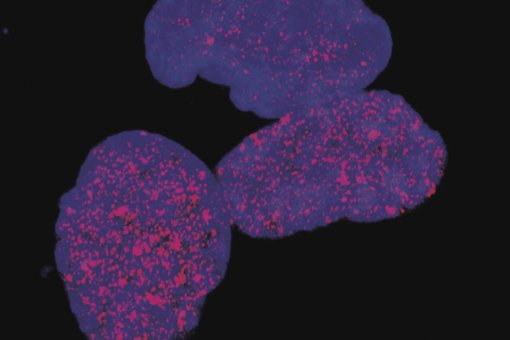Images
Contact

The results from this research have been published in the 4 September online edition of the scientific journal Nature Genetics.
Scientists at the Institute for Research in Biomedicine (IRB Barcelona) of the Parc Científic de Barcelona have performed a study that indicates that some cancer tumors may originate through defects in stem cell division. The study, directed by Cayetano González, ICREA researcher and head of the Cell Division Group at the IRB Barcelona, has focused on the division of the neuroblast, the cell fated to become a neuron, in models of the fly Drosophila . The results from this research have been published in the 4 September online edition of the scientific journal Nature Genetics.
Neuroblast division results in two cell types: one just like the parent and which is kept to maintain the stock, and the other a smaller one that differentiates, as in the case of neuroblasts, into neuronal or glial cells. During this process, the parent cell becomes asymmetrical: it groups a set of special molecules, including the so-called proteins Miranda, Prospero and Numbs, in the area that will bud off and become a specialized cell.
“This asymmetry provides the new cell with the molecules it needs to launch new genetic programs that tell it what to become”, commented Cayetano González. “Our study, which began at the European Molecular Biology Laboratory (EMBL) and has continued in our lab facilities at the Parc Científic de Barcelona, examines the consequences when the process of localizing these molecules is disturbed”.
The researcher Emmanuel Caussinus, a member of Cayetano González's group and also an author of the article, created neuroblasts in which several specific genes responsible for the correct localization of Miranda and other molecules found in the parent cell were disrupted. “We did not obtain normal neuroblasts nor daughter cells capable of becoming part of a nerve. Instead, we had a tumor”, he explained.
Furthermore, when these altered cells were transplanted into the abdomen of flies, the tissue containing the altered cells grew 100 times its initial size; cells invaded other tissues and death followed. “The growing tumor became “immortal”; cells could be re-transplanted into new hosts for years, generation after generation, with similar effects”, commented Emmanuel Caussinus.
The study proves that the loss of function of specific genes that regulate the fate of daughter cells could lead to uncontrolled proliferation, thereby triggering a series of events that affect cell equilibrium in general and lead to cancer. “On the basis of our results, new lines of research could open up on the link between embryonary stem cells and tumors in other animal models and also humans”, commented Cayetano González.
About IRB Barcelona
The Institute for Research in Biomedicine (IRB Barcelona) pursues a society free of disease. To this end, it conducts multidisciplinary research of excellence to cure cancer and other diseases linked to ageing. It establishes technology transfer agreements with the pharmaceutical industry and major hospitals to bring research results closer to society, and organises a range of science outreach activities to engage the public in an open dialogue. IRB Barcelona is an international centre that hosts 400 researchers and more than 30 nationalities. Recognised as a Severo Ochoa Centre of Excellence since 2011, IRB Barcelona is a CERCA centre and member of the Barcelona Institute of Science and Technology (BIST).




